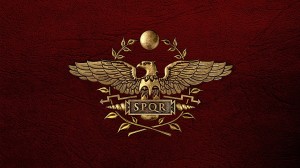Dear Portfolio Committee,
Coming into English 101: College Writing I thought of myself as a fairly decent writer. Throughout high school I received praise from English and History teachers alike on almost every essay or research paper I turned in, beginning with my freshman year essay on the morality of Atticus Finch in Harper Lee’s To Kill a Mockingbird, which is still (despite its numerous flaws) something I am proud of today. However I learned from this class that loquacious words and artful prose alone do not make for good writing. My passion in life is history and history is made up of stories alongside facts, neither excluding the other. This class helped me understand that the substance – not the smooth skin – of my work will be the driving factor on how it is judged.
My first essay is a memoir focusing on a particular event in my life which involved the notion of persistence in some way or other. I chose to write about the time I spent at Ft. Benning, GA during which I officially became a United States Army dropout. The essay is personal to me because I detail a tough journey in my life when my planned future shifted beneath my feet and sent me tumbling back home with my tail between my legs. However I chose to emphasize the positive side of this time and focused strongly on the growing relationship between myself and a battle buddy of mine, Adam Taylor. For instance I quote myself in writing, “Taylor turned the bleak and hopeless summer ahead of me into the best of my life.” I follow this up with examples from my time at Ft. Benning when Taylor and I would break, bend, and ignore enough rules to earn each of us the distinct “honor” of being personally known by our Company Commander. This essay, I think, shows that I can blend an interesting narrative with nicely crafted sentences and if nothing else can at least tell a fairly attractive anecdote.
My second submission is an annotation project in which I was charged with choosing an image and then writing several research based paragraphs on questions the image brings to mind. For my image I chose a photograph of a statue commonly believed to have been of the 4th century Roman Emperor Julian the Apostate. I chose this image because Julian, as the last non-Christian emperor, epitomized the dying romanticism of classical history which I hold dear and find endlessly fascinating. As Gore Vidal wrote, Julian was one of the “brightest yet briefest lights of the Roman Empire”. This project shows that I can do the necessary research behind such a work and keep it focused on my main subject whilst also branching off into several anecdotes of ancient history which the image calls to mind (e.g. sculpture, the fall of Rome, mythicized events).
My third and final article is an argumentative research paper where I picked an issue and took a stance on it, using research and facts to prove my side had the best argument. For this I chose to argue that democracy is dangerous and destructive to western society, along with simply being a subpar form of government. I chose this issue simply because it is controversial and I wanted to challenge a commonly held notion of our society. In my argument I thought it would be effective to detail what the American founding fathers had to say about democracy and of the quotes I used I think the most effective was from our 3rd President, Thomas Jefferson where he argues that “A democracy is nothing more than mob rule, where fifty-one percent of the people may take away the rights of the other forty-nine”. Other moments I am proud of in this essay include when I refute the argument that democracy fosters creativity by taking into account the Renaissance and Imperial Rome. My final submission to you proves my ability to use resources to their full extent and extract the most winning arguments from each, even from sources which do not agree with my conclusion. It also demonstrates my skill at arguing an unpopular point in a very logical and well-prepared fashion, whilst not giving ground or watering it down with concessions.
In conclusion I would like to repeat my main arguments in my own favor. I believe I have proven I can aptly build an essay, keep said essay focused and devoid of tediousness, organize each paragraph and sentence soundly, properly use research sources, and lastly to create a pleasing blend of attractive style and substantial opinions.
I hope you enjoy reading what I certainly enjoyed writing, and I thank you for your consideration of my portfolio.
Sincerely,
Jordan Goneau-Goncalves


